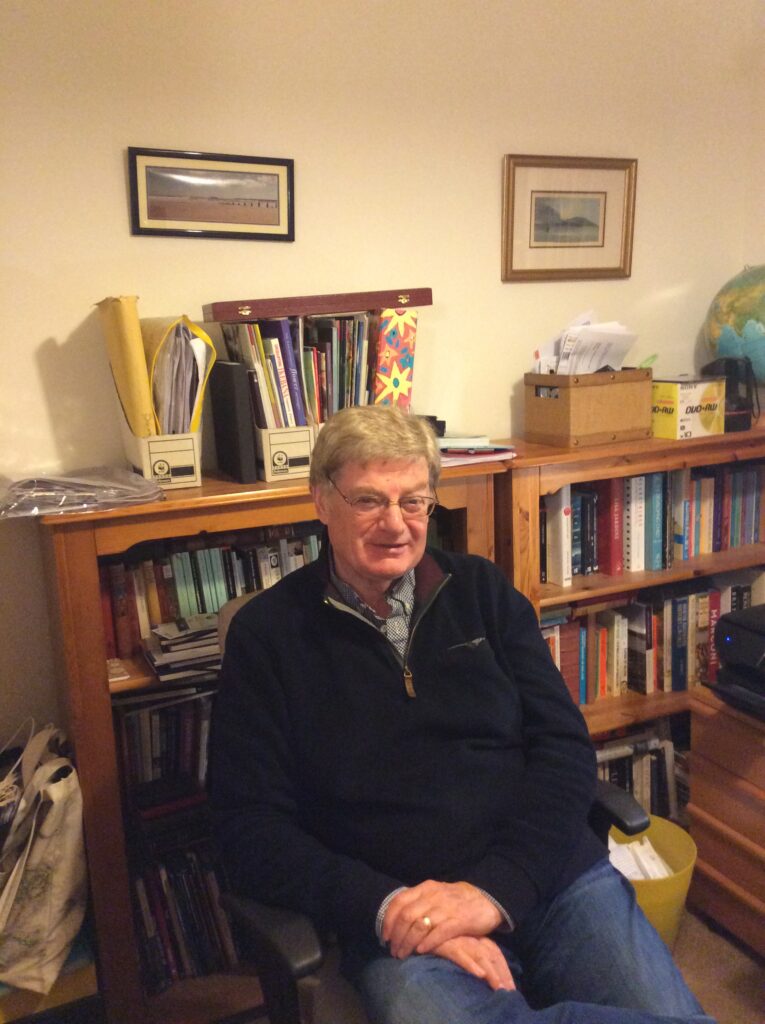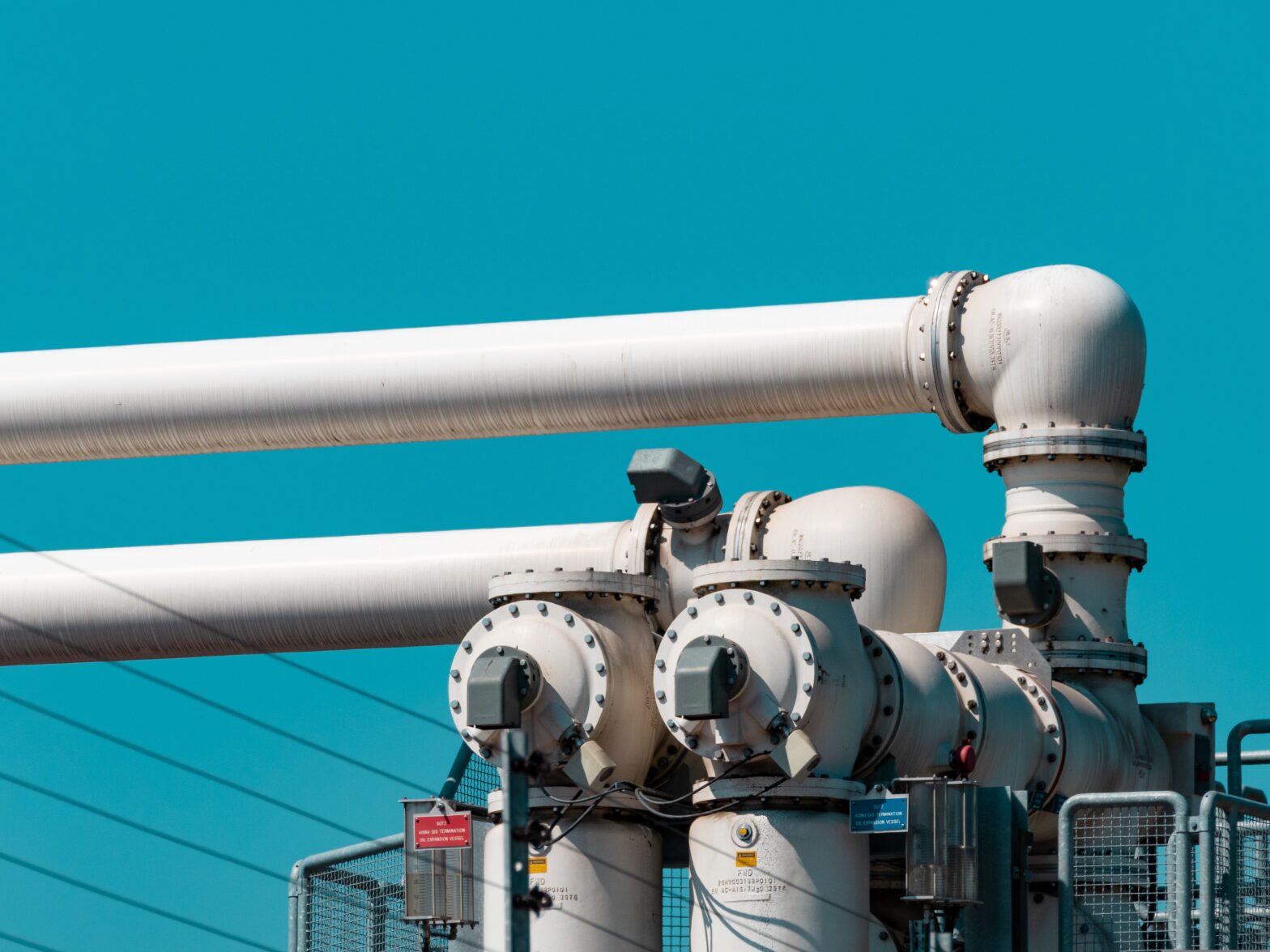27 January 2022
It’s a Gas
By Paul Branch

Here in the Cotswolds they say that if you stand on the elevated green of the first hole at Chipping Norton golf course, on a clear day you could see all the way through a gap in the Urals to the Siberian Steppes …. if the curvature of the earth didn’t get in the way. But wind tends to follow the earth’s surface so this must be where we get our nippy eco climate from. And it’s from here that we and the rest of the UK and the EU receive much of the natural gas which keeps us warm against the icy Siberian beasts from the East.
Siberia has the world’s largest gas reserves, our good friends in Russia are the world’s biggest suppliers of gas and are economically dependent on their loyal customers, as are we on their reliable supplies of cheap gas. Or so it used to be, but my, how things have changed.
In the days of the USSR it suited Russia to sell its gas to Soviet satellite states at a good discount in order to help along their mutual relationships and reinforce their dependency on the mother ship. Come the collapse of the empire and the ex-Soviet republics going their independent ways, it still made strategic sense for Russia to maintain the price discount system so as to preserve an economic foothold in their self-proclaimed sphere of influence. Too many heads were being turned towards the West for Russia’s liking: their joining the EU was bad enough, but joining NATO was a different prospect altogether.
Gazprom (50% Russian government owned) provides 70% of Russia’s gas output and supplies one third of Europe’s gas. Germany is 90% reliant on Russian gas, others less so but overall there is an alarming dependency on Russia’s munificence or willingness to maintain supplies. Exports account for 35% of Russia’s total gas production, which contributes hugely to their own economic wellbeing. Ten years ago the needy nations in the EU who no longer produce enough for their own requirements vowed to reduce their dependency on gas imported from Russia, but sadly not much has happened to back up that decision and if anything the position has worsened. We in the UK not only don’t produce enough but there’s also a lack sufficient storage capacity, having closed our only major gas storage site in 2017. If the Russian gas taps were to be turned off, or if the West decided enough is enough over another invasion of Ukraine, the alternatives look bleak. Liquefied natural gas imported from the USA or Qatar would be a possibility, but for that to happen we would need a complete new infrastructure of LNG terminals, storage and connection.
During the 1990s the Russian economy struggled to gain traction in their new post-communist political environment, but two events conspired to propel them in the right direction. The first was a seismological increase in the price of oil (Russia is second only to Saudi Arabia in oil production) from under $10 a barrel at the turn of the millennium to around $90 now, and it’s been a lot higher – a good way to cure those Soviet hangover economic woes. Combined with its gas revenues Russia now has foreign currency reserves to spare and a booming domestic economy in most parts of the country which they would be loath to lose. But even if Western countries decided overnight not to take any more gas from Russia, in the event say of an aggressive spat over Ukraine as just a hypothetical example, it wouldn’t do a lot of harm to the state coffers, at least not in the short term, although some high officials in government and Gazprom might get personally miffed. On the other hand, severe economic sanctions to prevent Russia buying anything from abroad or exporting goods other than energy would not sit well with the Russian public.
The second event to influence Russian economic growth was to give a callow young slip of a lad the job of running the largest country in the world, but it’s actually over 22 years now since Vladimir Putin (approaching his 70th birthday already) took over from Boris Yeltsin as President of Russia. He still looks quite the self-effacing youngster, taking little diffident steps the length of the red carpet to his place at the centre of the dais overlooking the massed hall of the State Duma to address the Federal Assembly or on state ceremonial occasions. Quite at odds with that relaxed, confident statesman we see at his annual hours-long public phone-in with his electorate, or in easy company with other world leaders. It was Putin’s decision to return the energy companies to state ownership, giving him control over supplies and relationships with other countries, as well as igniting the economy for the benefit of his electorate.
Putin’s credentials for the job are impressively broad and diverse: various arms of the military with active service, plus a range of parliamentary and political positions including Secretary of the State Council, make him sound like a Jack-of-all-trades. In between there was of course a significant period with the KGB rising to Lieutenant Colonel, where no doubt he honed his ruthless streak and gained street cred amongst his Kremlin contemporaries. During his early years in high office, and helped by rising energy prices as he turned around the Russian economy from the shambolic post-Soviet era, his friendship with a gaggle of oligarchs set him on course to huge national commercial success and personal immense wealth. In this guise he seems more of a Jack-the-Lad, ducking and weaving with the most influential movers and shakers both internationally and domestically, staying close to his allies and keeping his opponents in the dark trying to guess his motives and his next moves. His political nous is another major contributor to personal success – removing any meaningful opposition or dissent, and doing away with the two-term limit on the Presidency (a feat much admired by Donald Trump) leaves him with a seemingly unfettered and limitless future. At home and abroad Putin’s celebrity profile is complete — one of a handful of the most influential people in the world, and arguably he’s at the top of the pile.
With all that’s happening on Ukraine’s Eastern borders there is a real possibility of supplies through the Nordstream 1 and other pipelines being regulated by Moscow to suit the Kremlin’s political and strategic priorities. And never mind Nordstream 2 which is turning out to be a real bone of contention between Germany and the USA. Putin must be enjoying that little disagreement, and oh how the Europeans must be regretting putting so many of their energy eggs into Russia’s once friendly basket.
So what will Vladimir Putin do next? Who knows, and certainly not the combined Intelligence might of the NATO alliance. One supposition though is that Putin wants Russia to continue to be seen as a reliable energy supplier, otherwise his support at home flies out the window along with the economy and his personal fortune. Another is regarding Jack-the-Lad’s favourite hum-along number at the moment as he surveys the chaos and uncertainty he’s managed to stir up, and part of it goes like this:
But it’s all right now, in fact it’s a gas.
But it’s all right, I’m Jumpin’ Jack Flash.
It’s a gas! Gas! Gas!
tile photo: by the blowup on Unsplash


